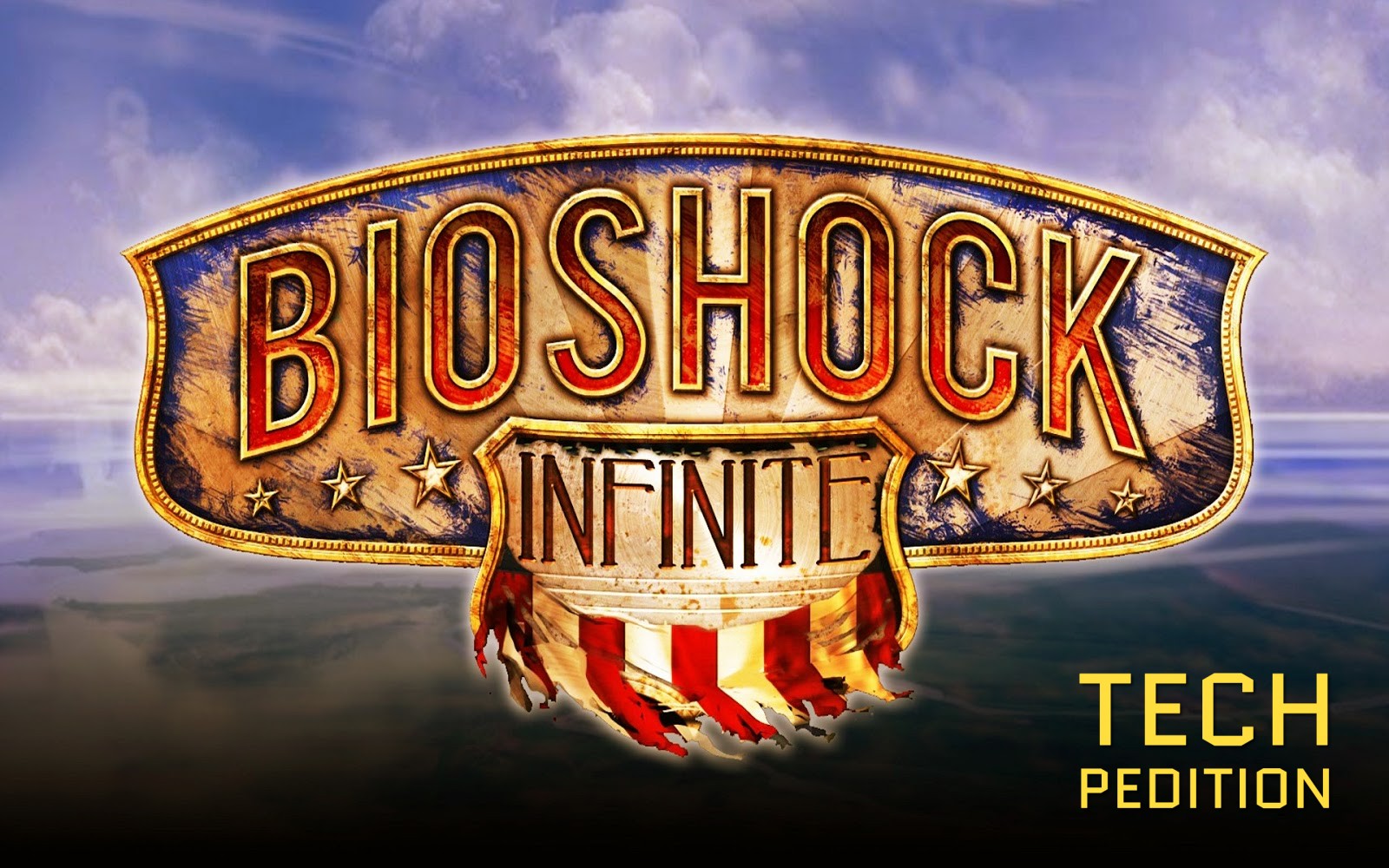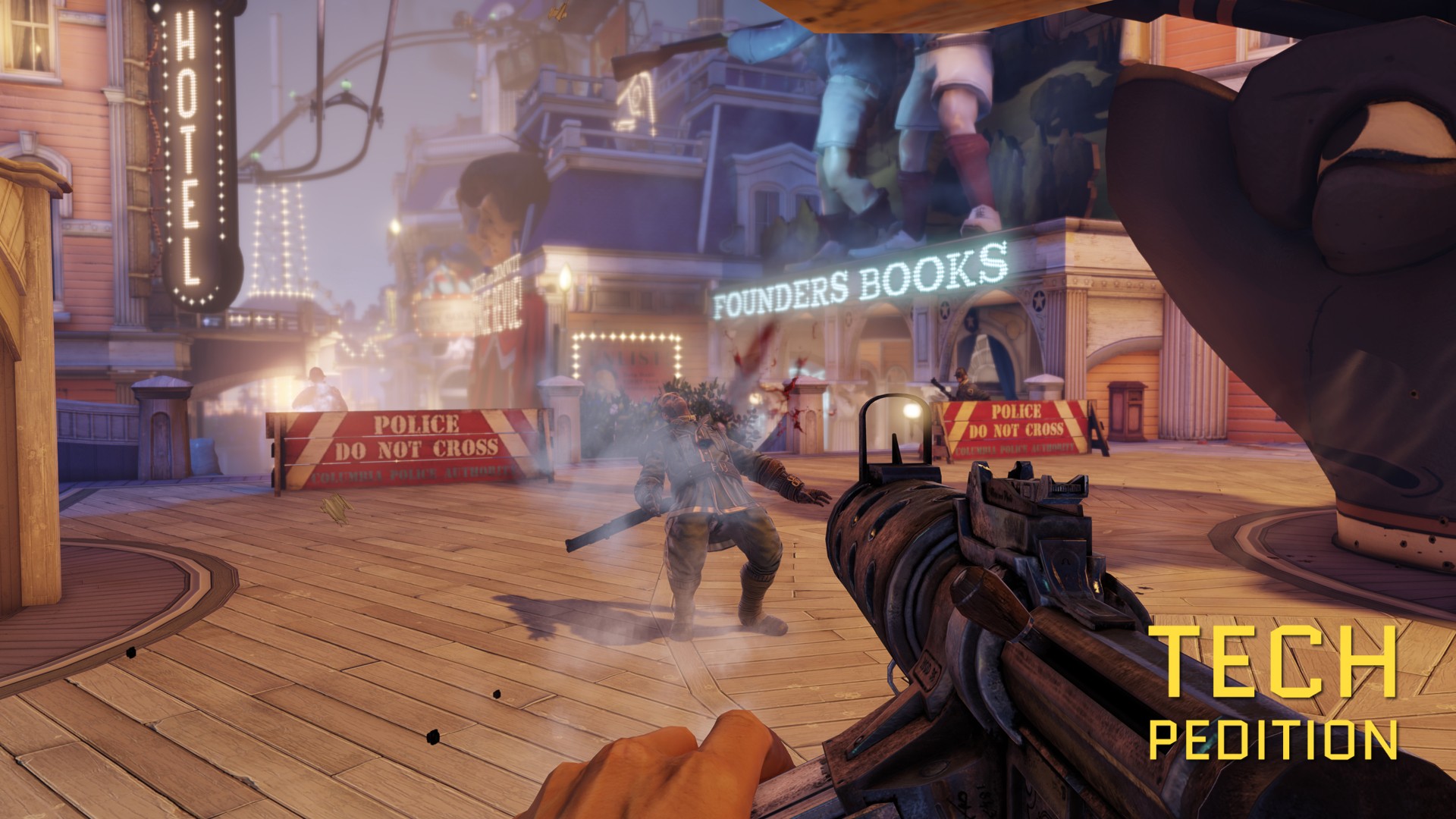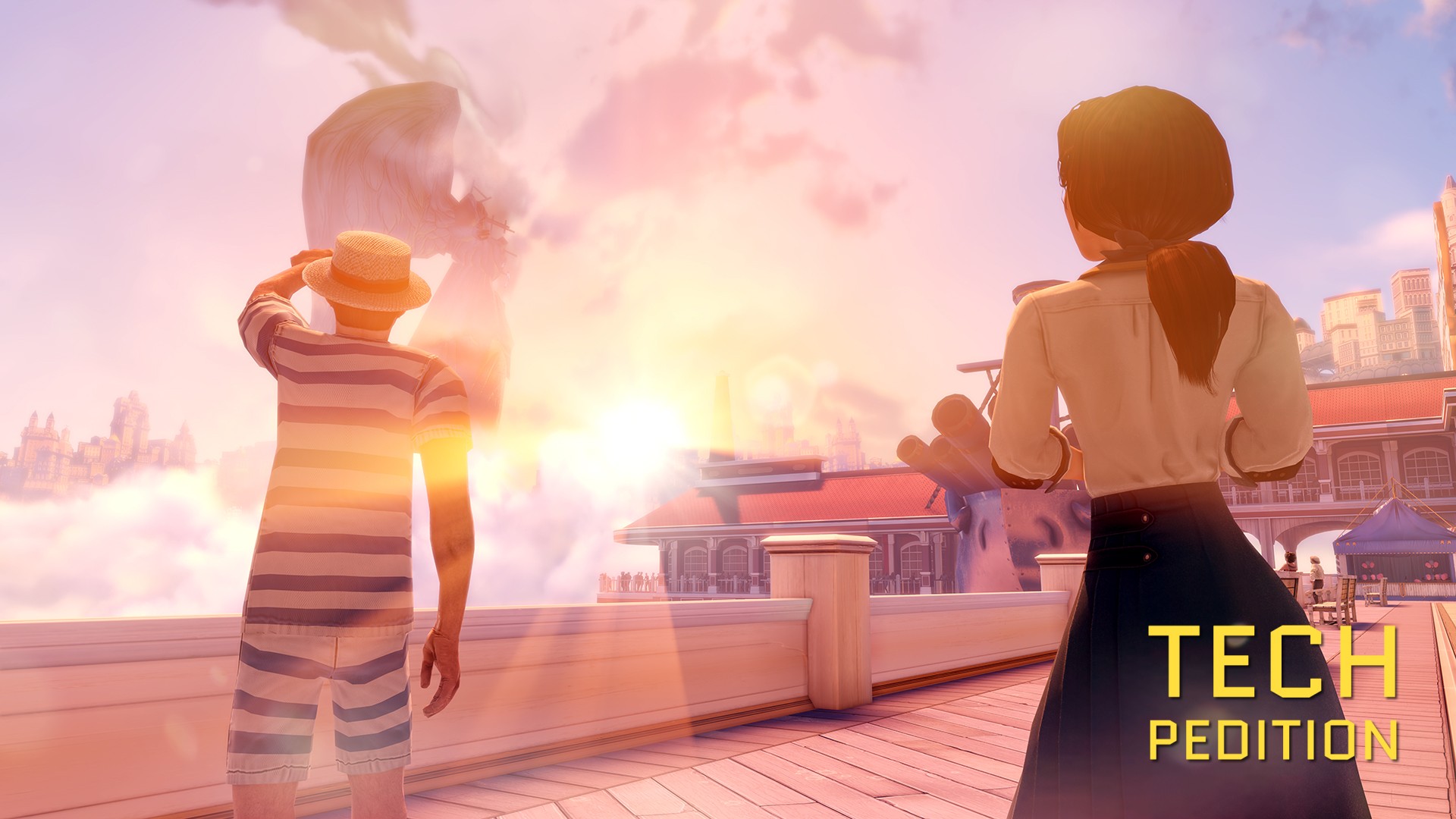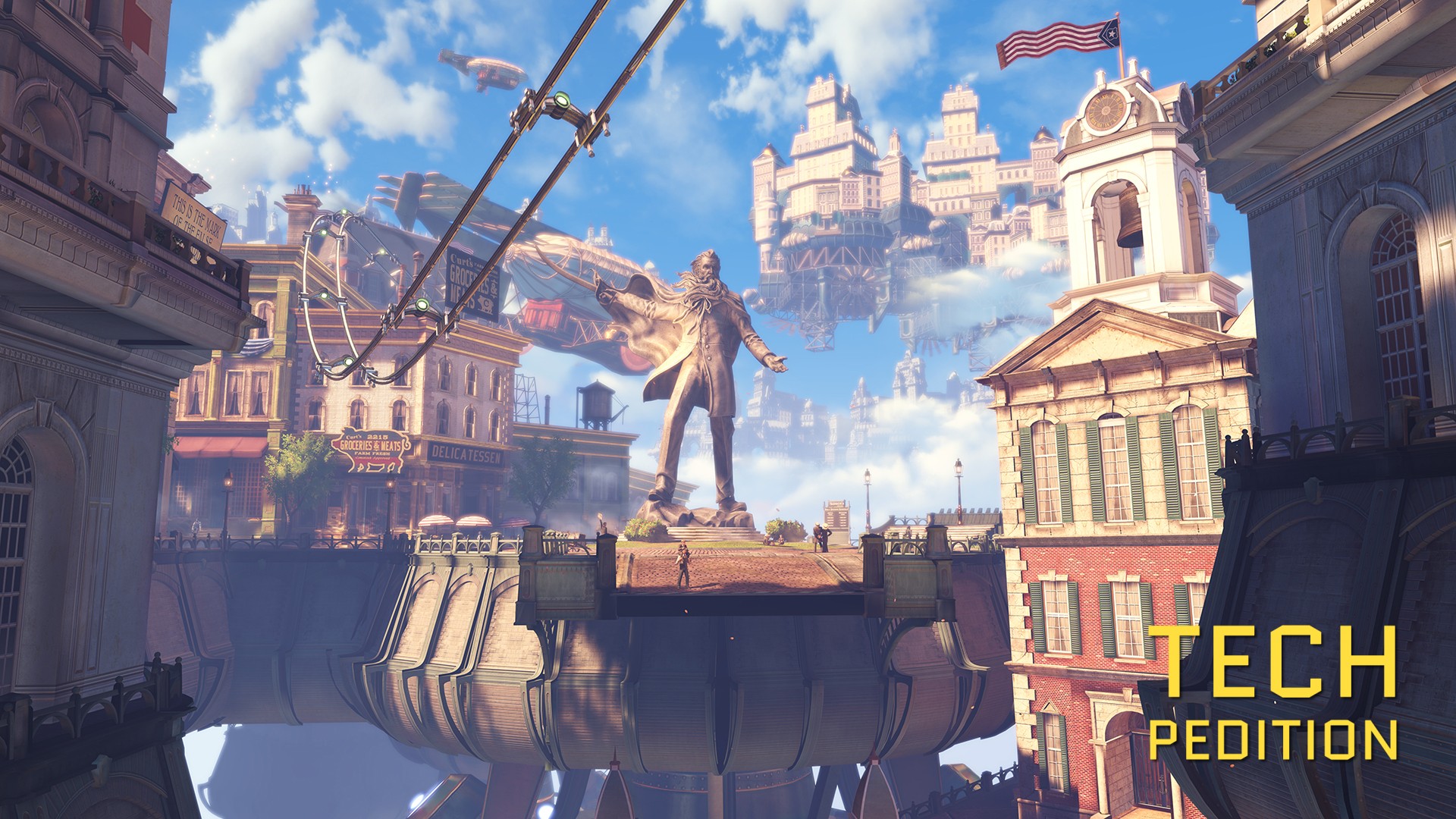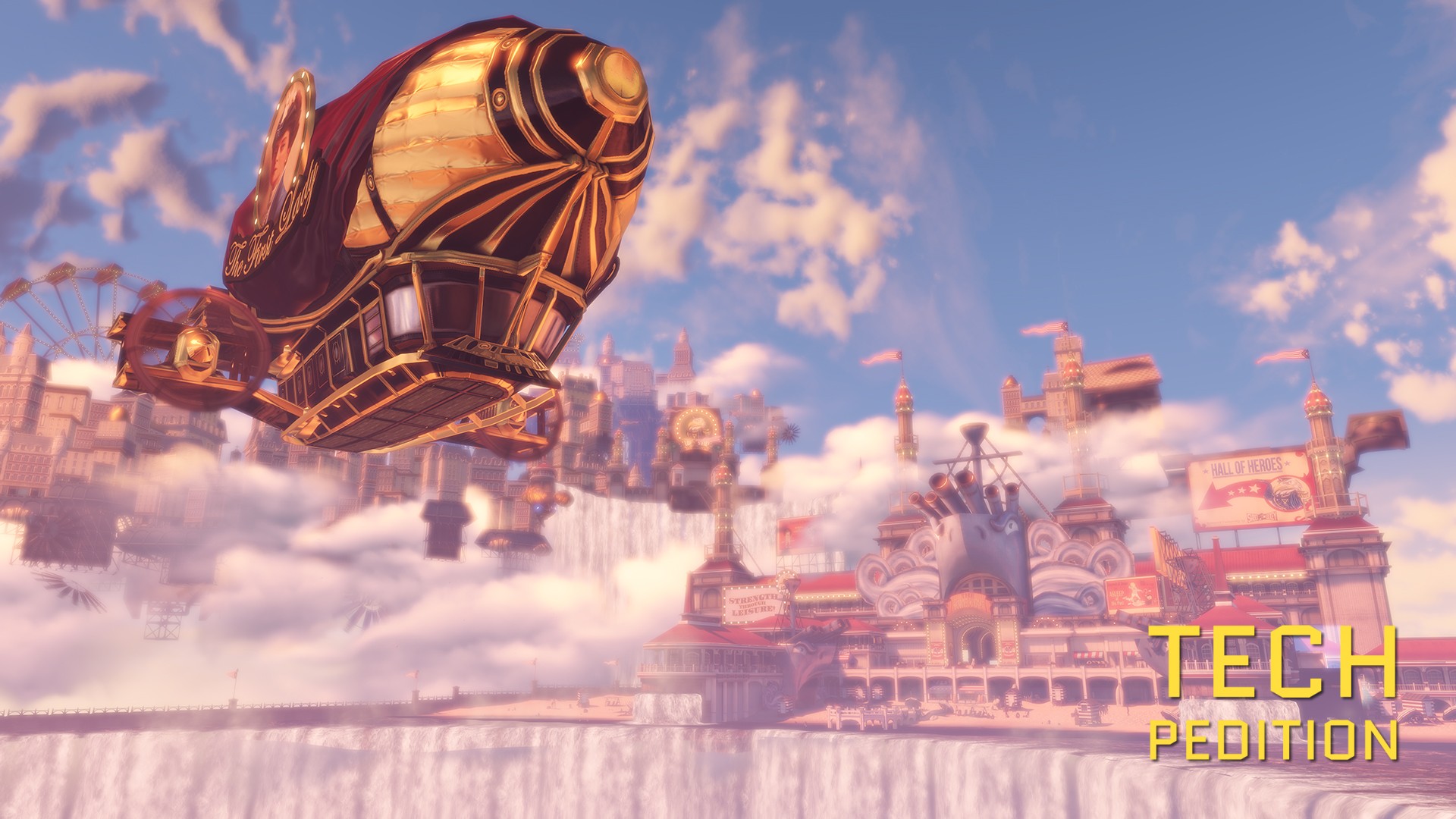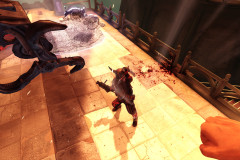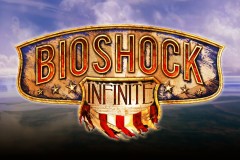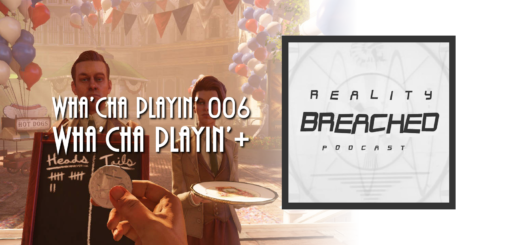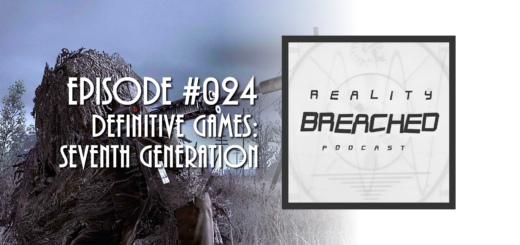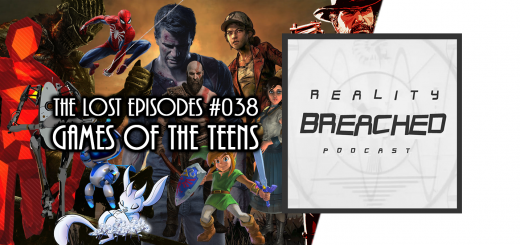Bioshock Infinite Review
Ah Bioshock, I love you. Seriously, no other game from the this or any generation moved me like you did. You created a world of wonder and had the most mind bending story I ever experienced in video games. Bioshock 2, you were good, but nothing could touch the magic on display in the original game. I am always telling people how amazing you are and refuse to spoil your magnificent ending/twist. Look at me, reminiscing about games gone by when there are new experiences to have. Let’s let go of the past and talk about your new sibling Bioshock Infinite.
Pre-release I was very careful not to expose myself to much Bioshock Infinite press. I saw the setting of Columbia, and that it was an FPS from Irrational, and needed no additional convincing. What I didn’t understand was why it was called Bioshock. At first I assumed it was a marketing ploy by 2K to ensure that the game got the attention it deserved. As slimy as that sounds I was ok with it, business is business. After playing through Infinite, the “Bioshock” correlation is very apparent.
Outside of the story, setting, characters and lack of a morality system, everything else IS Bioshock. The interface, controls, tonics/vigors, sound effects, narration, audio-logs, world layout and mystery are all lifted directly out of the original game. It was comfortable to be playing a game that felt familiar and It felt good to let 2K off the hook for using the Bioshock name, but most importantly having the same tone as Bioshock helped move the story along with the appropriate amount of tension.
In many respects, Infinite’s setup is the exact opposite of it’s predecessor’s. Where Rapture (the setting of the original game) was constructed around the idea of having a city free of the oppression that comes from religion and government, Columbia was created as a land where God and country reign supreme. Rapture was set underwater, Columbia is set in the sky. Jack in Bioshock was silent, Booker in Infinite is very talkative. A central theme in Bioshock was being alone in a foreign land, but in Infinite Booker has Elizabeth for most of the game. These differences make Infinite distinct, and fresh and the setting of Columbia by virtue of its openness makes the gameplay very different.
While personally I didn’t like Columbia as much as Rapture, and the later chapters in Infinite are so dark that the initial bright draw of the setting is nearly gone, but this city in the sky is much more interesting than what you will find in most FPSs. What is very different in Infinite are the citizens of the cities. In Rapture there were no innocent bystanders, everyone was a splicer, and everyone wanted to kill you. Columbia is a functioning city, with residents and stores. Its not always obvious which citizens will attack you and that causes fight sequences to break out with little warning. Luckily none of the battles are too difficult. On normal, I was able to blow through Infinite with a minimal non-frustrating amount of dying.
The guns and powers are play like they did last game, except the powers mapped to the left hand/trigger, don’t fit into the fiction as well as they did before. In a land ruled by science, its feasible to believe that gene splicing led to superpowers like fire and lighting shooting. In the land of god in the sky, the level of science needed to pull off these powers seems less possible. Sure, Columbia floats in the sky using a “science” but having the vigors, while fun, seems a bit anachronistic. Also, the ease of the game itself makes most of the powers unnecessary. I found myself using other guns and vigors, simply to unlock achievements.
Elizabeth, your partner for lack of a better word, is the crux of the entire story. You are contracted by a set of twins in New York to go to Columbia and retrieve Elizabeth under the promise that a debt you owe will be wiped clean. Very quickly you realize that Elizabeth is no ordinary girl. She has the power to create and discover tears in the fabric time and space. This allows her to see and interact with things in alternate/parallel/tangential universes. This power is the setup for the story itself, and also is a handy gameplay mechanic.
After obtaining Elizabeth you can pull objects like turrets, cranes, cover, and other things through tears at predetermined places in the world. Its a fun mechanic, albeit optional and not nearly as helpful as you would imagine. Elizabeth is also a handy scavenger, she will scour the area for supplies and throw them too you on the fly. I found that really really fun. During the more intense battle sequences, to get the most out of your offensive abilities, its smart to use heavy combinations of vigors, and dimensional tears. Having all these things at your fingertips made the action thrilling and the inclusion of Elizabeth is a huge plus where usually games like this turn into a long escort mission.
Lets get down to the brass tacks, everyone knows what you buy a Bioshock game for, and that’s the story. The twist-laden emotional roller-coaster that the mood and setting create is why you’re here and in this aspect, Infinite delivers in spades. I’m going to try to avoid spoilers here, and anyone interested in playing Infinite would do themselves a favor by avoiding ALL internet discussions about the game until after they’ve completed it. Its very easy to become attached to Elizabeth’s character. Her Disney princess-like appearance and the fear of her dimension ripping power very quickly demonstrates how dynamic her character is.
Her imprisonment immediately makes her a sympathetic character, and both the player and Booker feel the need to protect her and get her away from Columbia even if the seed of his heroics was selfish. The first act of the game carries a very familiar “damsel in distress” vibe, and its used well to develop a contentious relationship between Booker and Elizabeth. The landmark moments in the story, center around the Songbird. Its a giant robot bird, who was created to both protect and imprison Elizabeth. Obviously, the Songbird’s directive is at odds with Booker’s and multiple scary encounters occur in the Songbird’s pursuit of recapturing Elizabeth.
Most of Act 2 is spent fleshing out the history or perceived history of Columbia, while exploring both a citizen uprising by a rogue minority group called the Vox Populi (Infinite has fantastic names across the board Booker Dewitt, Vox Populi, Zachary Comstock, Daisy Fitzroy, etc.) and Elizabeth’s relationship with her mother Lady Comstock. Booker is reluctantly pulled into the war between Comstock (the founder and leader of Columbia) and the Vox Populi, in his attempts to free Elizabeth. All of this leads to Elizabeth exploring her dimension tearing abilities.
To give a description of what happens in the third act would rob you, the player, of the experience of the game. Going into the final hours of the game, you will have theories of what exactly is going on. Some of them may be right, some of them may be wrong, and in some cases all of them will be right or all of them will be wrong. The end of Bioshock Infinite will have you second guessing the reality you just played through and will have you remembering things in the game you initially did not think were important. The deliberateness of the pacing and placement of every single detail of the story is done in such a masterful way, that when everything is revealed in the end the pieces you didn’t know where there reveal themselves in marvelous heart stopping ways.
The argument of whether video-games are art is an ongoing one and I know no other game that proves they are art more that Bioshock Infinite. Art, whether its a movie or a song or a painting is meant to solicit an emotional response. The best movies are not watched they are felt. They feed a portion of our brain that controls the uncontrollables. That feeling you got in your gut the first time a song reminded you of a dead loved one or the feeling of comfort a poster on your wall gives you is the result of art being art.
Bioshock Infinite has deep emotional hooks in it and while it may not speak directly to you in the end, any player looking to get invested in this fiction WILL be moved by its outcome and your uncontrollables will be affected. On my playthrough, I simultaneously had butterflies and a knot in my stomach watching the ending playout. Even the aspects of the tale that I was able to predict where heartbreaking and and breathtaking.
As I watched the final scene with my mouth agape, I knew I had experienced something special, something unique and something people will be talking about for years to come. Is the ending of Infinite better than Bioshock? Yes! Bioshock’s twist was unexpected and thrilling, but the overall story was one dimensional (pun intended). Infinite is as mind bending as Inception and has just enough breadcrumbs to leave much of the underlying plot open to interpretation and mysterious.
Much has been said about the themes and characters in Infinite. One of the most interesting discussions about the game is its position on religion and zealotism. Clearly Infinite paints fanatical religious beliefs in a negative light. Zachary Comstock is not only the founder and leader of Columbia but he is portrayed as a spiritual savior. As an agnostic, I can’t speak for the religious people of the world, but I see the story as only a possible outcome of blind fanaticism. There are religious nuts in the world (Westboro Baptist Church) and they do horrible things in the name of their god. Any level headed Christian can see that what WBC does is wrong and Infinite simply shows what that type of group or entity can do when in power. Its inclusion in this game isn’t a denouncement of religion, its a denouncement of zealotism.
Looking at Infinite’s themes juxtaposed with Bioshock’s Ayn Rand inspired themes, its easy to see that Irrational is clearly dabbling in the land of theoretical fiction. If the two camps on display here are No Religion and All Religion and chaos comes from both, then neither is the sole right answer. Therefore, both faith and reason must exist for a society to function. Taking the sensitive nature of religion and the fact that ignorance leads to anger, its very easy to see how someone unfamiliar with the ideas at play here could become upset with how religion fed the story. I don’t mean to sound like a prick, but that comes off as a personal problem.
Video Games are a form of expression and nowhere in the game is religion denounced outright, so any problems people have with the game would be an extrapolated interpretation that’s far removed from the story itself. If they simply take a moment and remember that they are playing a game that not only involves a floating city, but also the existence of and interaction with alternate dimensions, they would see that it’s sci-fi. Quit trying to apply its foreign themes to your life, you’re being selfish.
The last thing I’m going to talk about is the gore. During my playthrough at no point did the gore upset me or even have be questioning its placement in the game. Maybe its because I just finished Telltale’s The Walking Dead, or maybe as an M rated game player I have grown accustomed to a certain level of maiming and dismemberment. Yes, Infinite is gory. The melee kills alone are enough to warrant the M rating. Some critics are saying the violence seems out of place, and the the level of gore actually took them somewhat out of the experience. I didn’t get that, but they might be onto something, I don’t know. However, why they would come into an FPS thinking there wouldn’t be some level of gore is beyond me.
In summary, (I say as I wrap up this term paper of a review) Bioshock Infinite is something special. It brings a legitimacy to the gaming as whole that is not available in most games. Its good to see that this generation of games still has a little life left in it and if Bioshock Infinite ends up being the ceremonial bookend to the PS3 and 360 era I would say video gaming will be fine. Anyone remotely interested in Bioshock, deserves to experience Infinite. Ok, I’ll shut up now…
Verdict: Would you kindly…GO PLAY BIOSHOCK INFINITE!

